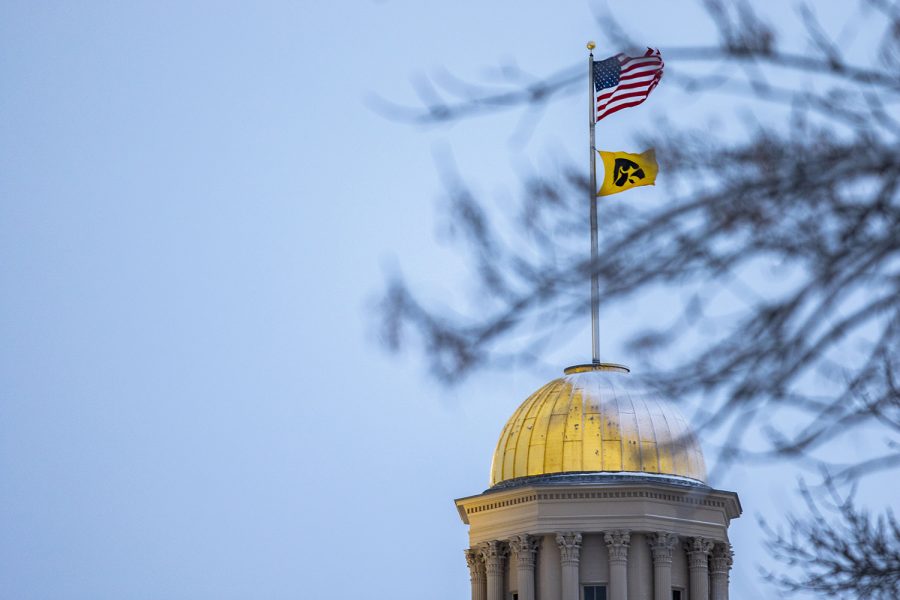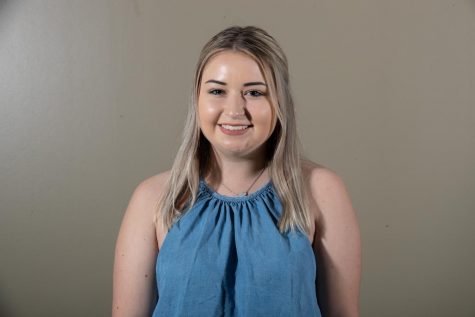Grad students continue through programs with little academic advising
Upon arrival as an undergraduate, students are granted many resources to tailor their major or plan of study. However, as a graduate student, many must navigate what can sometimes be a more challenging plan of study independently.
The Old Capitol is seen on Nov. 25, 2018.
February 28, 2019
From the moment students step on campus as undergraduates, resources, advising, and other programs are available for them, whether they arrive as an open major or in a specific field of study. For graduate students, however, that is not always the case.
The University of Iowa provides students with many tools for first-year undergraduate students to succeed, said Lisa Ingram, an assistant provost and the director of the Academic Advising Center.
“Depending on what college you are admitted to, the UI immediately places you into a program with a designated adviser,” Ingram said. “All our advisers work with open majors as well, and we specialize from there.”
She said many students change their majors as they continue in their undergraduate years and adapt to the change in environment. She estimated that approximately 50 percent of undergraduates change their majors in some way upon arrival at the UI and have the advisers to help them through any shifts they would like to make.
“We are the first tier for advising at the UI,” Ingram said. “After us, undergraduates move on to second-tier advising with their departments. This allows advisers to give students the tools for academic planning and help find their fit on the UI campus.”
RELATED: UI graduate student earns Excellence in Teaching Award
The UI’s advising follows a mandatory advising model, she said, in which students are required to see their advisers during their first year at the university.
However, these hands-on advisers and additional resources are not always available to graduate students, said Jennifer Teitle, an assistant dean in the Graduate College. She described the advising graduate students receive as far less central.
“You don’t have academic staff or department staff,” Teitle said. “You may work with a few faculty members in a master’s program. A Ph.D. program is five to six years with faculty members. Traditionally, people training to get their Ph.D. are trying to be college professors. So these candidates would spend all of their time working with that one adviser. However, in recent years there is very few academic positions.”
Historically, graduate education hasn’t gotten a lot of support for diverse careers.
— UI graduate student Brady Krien
Because the positions in the institutions are often limited, the students transfer outside of academia into a nonprofit, working in a company, or start their own business, she said.
“The problem is their faculty don’t necessary have experience doing that,” Teitle said. “Faculty often went the more traditional route and just became professors.”
At the Graduate College, Teitle said, the staff have developed a grad success center with career advising for nonacademic careers and academic careers.
“These services have built up over the last five years,” Teitle said. “They are put in place to help graduate-student development so they can get the jobs that they want.”
UI graduate student Brady Krien said different departments and advisers approach the issue in many ways.
“Historically, graduate education hasn’t gotten a lot of support for diverse careers,” Krien said. “I think there is a lot of effort on campus to provide graduate students moral support. The Graduate College is focused on career success, and departments are making strides to do some of the mentoring and move toward diverse career options.”





















